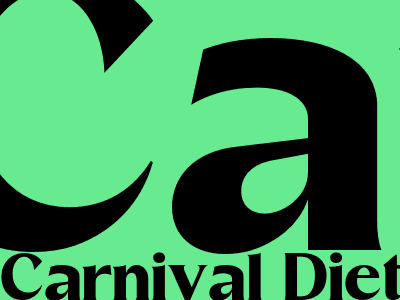Carnival Diet: A Comprehensive Guide to a Popular Pre-Lenten Tradition
Introduction
The Carnival Diet, a centuries-old tradition observed before the Christian season of Lent, is a period of feasting, indulgence, and merrymaking leading up to Ash Wednesday. This article provides a comprehensive overview of the Carnival Diet, its origins, practices, and potential health implications.
Origins and Historical Significance
Origins in Pre-Christian Celebrations
The roots of the Carnival Diet can be traced back to ancient pagan festivals celebrating the transition from winter to spring. These festivals involved feasting, drinking, and dancing as a way to honor deities and ensure a bountiful harvest.
Adoption by Christianity
With the spread of Christianity, these pagan traditions were incorporated into the liturgical calendar, becoming known as "Carnival" (from the Latin "carne vale," meaning "farewell to meat"). The period before Lent became a time for indulgence before the 40 days of fasting and penitence that characterize the Lenten season.
Practices and Traditions
Feasting and Indulgence
The Carnival Diet is characterized by a period of feasting and indulgence. Traditional Carnival foods include fatty meats, sugary treats, alcohol, and pastries. These foods symbolize abundance and the enjoyment of life's pleasures before the rigors of Lent.
Costumes and Celebrations
In many cultures, Carnival is associated with elaborate costumes, parades, and street parties. These celebrations provide a sense of community and bring people together in a shared experience of joy and revelry.
Health Implications
Short-Term Considerations
While the Carnival Diet may provide temporary pleasure, it can have short-term health implications. Excessive consumption of fatty foods, sweets, and alcohol can lead to indigestion, weight gain, and dehydration.
Long-Term Concerns
Regular adherence to a high-fat, high-sugar diet can increase the risk of chronic health conditions such as heart disease, obesity, and type 2 diabetes. It is important to consume Carnival foods in moderation and to maintain a balanced diet throughout the year.
Balancing Tradition and Health
Enjoy in Moderation
To enjoy the Carnival Diet while minimizing health risks, indulge in traditional foods in moderation. Limit portion sizes, opt for healthier versions of treats (e.g., fruit-based desserts instead of pastries), and stay hydrated by drinking plenty of water.
Focus on Nutrient-Rich Foods
Incorporate nutrient-rich foods into your diet during the Carnival period. Fruits, vegetables, and whole grains provide essential vitamins, minerals, and fiber that can help balance out the effects of indulgent foods.
Conclusion
The Carnival Diet is a fascinating tradition with deep historical and cultural significance. By understanding its origins, practices, and health implications, we can appreciate the joy and indulgence it brings while also making informed choices to maintain our well-being.

تعليقات